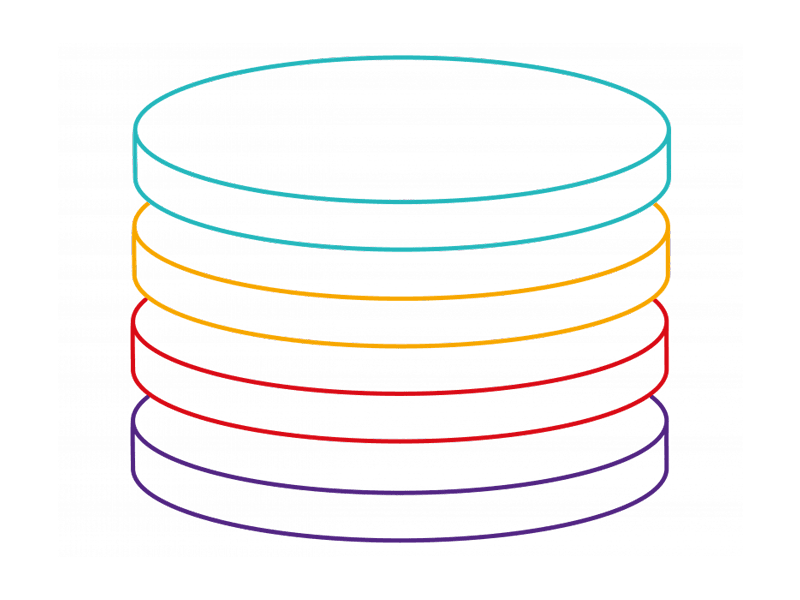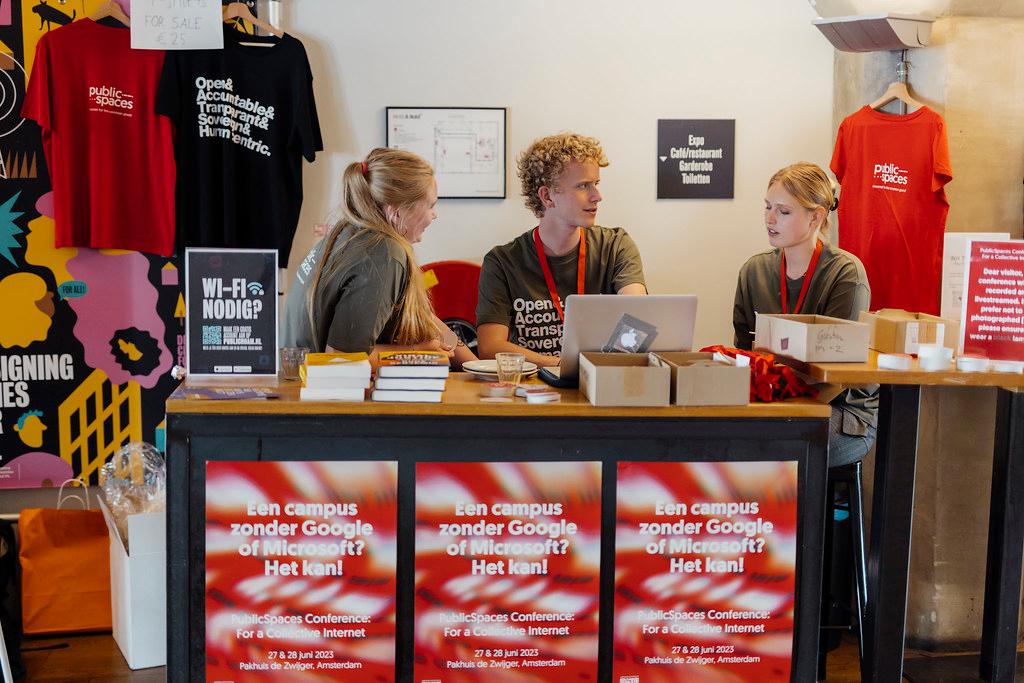Now that a large part of the country is working from home, a lot of work needs to be done via online solutions. Many of the available tools for digital cooperation are based on business models of extraction, surveillance, and tracking, also known as surveillance capitalism.
Waag is researching open, safe and honest alternatives for these tools. We call this collection of technologies the Public Stack.
Down below, you will find a list of tools that Waag uses as alternatives to the usual suspects like the ones made by Google, Microsoft or Yahoo.
Use Firefox or Brave as your browser
A web browser is your portal to the internet. Therefore, your browser knows what websites you visit when. On mobile devices, your browser even knows where you were while you were using the internet. Browsers like Google Chrome are able to connect your behaviour on the internet in a way that allows them to build a profile for you, based on which they can provide advertisements. But: there are alternative browsers that don't do this.
Mozilla Firefox is a browser that helps to keep your data private. Firefox blocks trackers automatically and provides the opportunity to visit a website like Facebook from a separate 'container'. This means you don't have to log out from websites like Facebook, but they also won't be able to track your behaviour all across the internet.
Download Firefox
Brave is a browser without advertisements. It doesn't track you and is much faster than other browsers. Its founder, Brendan Eich, is the creator of Javascript and former head of Mozilla. Brave openly fights for privacy, for example by researching the ways in which Google bypasses the GDP. The Brave browser also has an incognito mode with built-in Tor function. Brave automatically blocks advertisements and trackers, which makes sure it saves bandwidth and energy around the world.
Download Brave browser.
Send messages via Signal or Telegram
Signal is an encrypted app for messages, made by Open Whisper Systems. The app allows private and group messages. It's also possible to send voice messages, pictures, videos and other types of files. It also allows users to (video)call each other. Now that WhatsApp is under increasing pressure, people switch to this safe alternative en masse.
Telegram is another alternative for safe exchange of messages. Next to possibilities for creating group chats and exchanging pictures and videos like on WhatsApp, Telegram also provides the possibility to set up channels in which people can subscribe to messages.
Send your emails and plan your agenda through Zimbra or Protonmail
Zimbra is an open source co-working environment supporting email and group calendars. Email contacts and calendar items can be synchronized to and from the ZCS server. Next to this, Zimbra also offers the possibility of synchronizing with mobile phones and tablets. Recently, VMWare took over Zimbra from Yahoo.
Protonmail is an email alternative. It arised from CERN in Switzerland. Protonmail is specifically focused on exchanging emails safely and it provides apps and tools for its use, like many of us are used to because of Gmail and Livemail. Protonmail offers free and paid accounts.
Chat to your colleagues on Rocket.Chat or Mattermost
Rocket.Chat is the open source alternative for Slack, which is widely used. In Rocket.Chat, just as in Slack, it is possible to deliberate and share files with your co-workers directly or through various channels. If you'd like to transfer to Rocket.Chat from Slack, it is easy to migrate all the data. Next to that, Rocket.Chat allows you to organize the platform to your own liking.
Other alternatives are Mattermost and Riot Chat.
Manage your own cloud and work together on a document with CryptPad or Nextcloud
Nextcloud is an alternative for Google Drive or Dropbox. It allows co-working, saving files and sharing them. CryptPad is a 'private by design' alternative for popular office tools and cloud services. All content is encrypted and can not be accessed by anyone until someone gives them permission to do so. Working on a document together, like in Google Docs, is also possible in CryptPad.
For conference calls, experiment with Jitsi, BigBlueButton or Sylkserver
It is harder to find a good alternative for a video conferencing tool. At Waag, we are currently experimenting with Jitsi, which is an open source platform for encrypted video calls. Amongst others, the Dutch NLnet and the University of Strasbourg invested in this platform. Surfnet is currently working on a pilot with Jitsi. Our previous co-worker Bjorn Wijers is working on a Jitsi network that can be used by everyone, via VC4all.nl. Bits of Freedom is also looking into alternatives for video calling.
Other open source alternatives are BigBlueButton and Sylkserver. BigBlueButton is mostly meant for educational purposes, whereas Sylkserver provides opportunities for the business world.
All these options are open source, which also means the user is dependent on someone to host this software. This can be done by oneself, but for most people, this type of software is too advanced, which means the quality of video calls with larger groups suffers from it. We are still searching for good, more ethical alternatives to video conferencing. If you know of any options, please do get in touch with us.
In the near future, Waag will continue to research available alternatives for technology we do not condone. We will do this in relation to our research on the Public Stack. If you'd have any experiences with alternatives for software and/or technology that you would like to share, please send us an email. If you'd like to get involved further into the Public Stack research, sander ⟨ at ⟩ waag.org.
> Check out switching.software for more types of alternative software to switch to.


